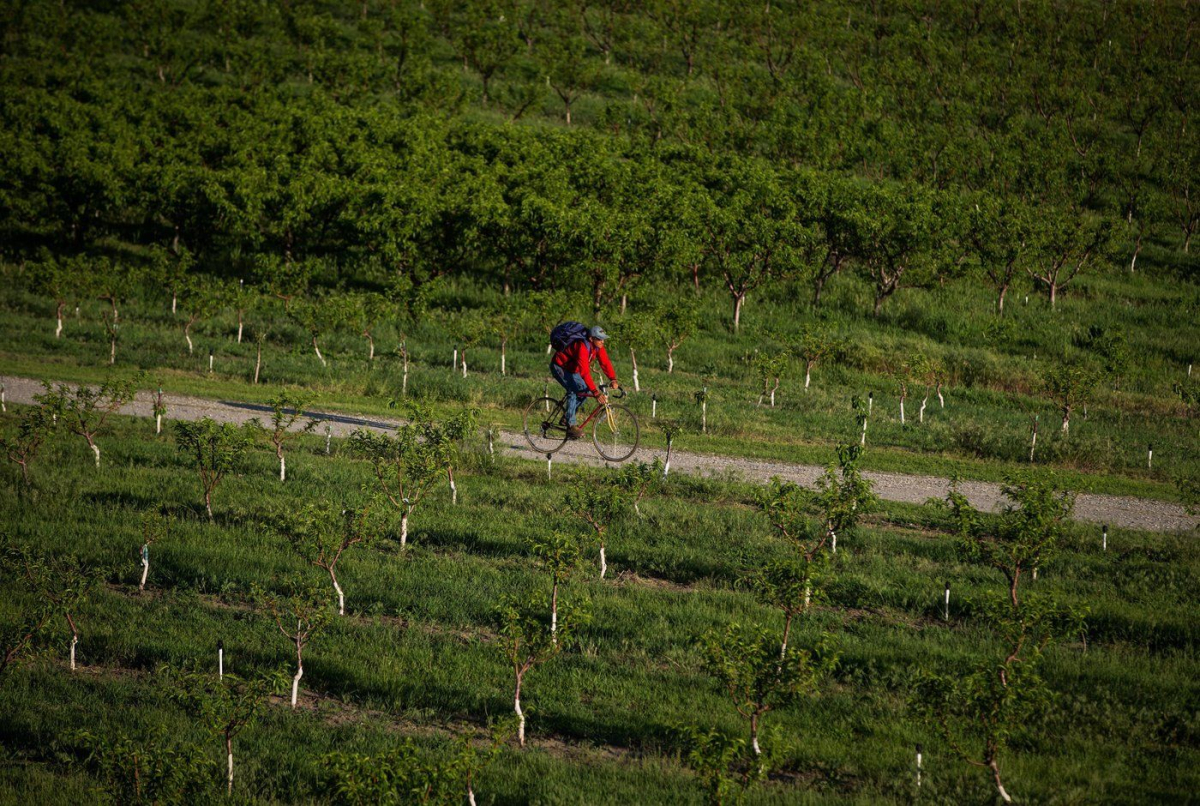Support strong Canadian climate journalism for 2025
British Columbia's fruit growers co-operative that served farmers for almost a century has filed for creditor protection, citing more than $58 million in liabilities and a disastrous crop failure this year that it called "the final tipping point."
But a former board member of the BC Tree Fruits Cooperative said the board's decision to close the business was made amid a power struggle for control and member discontent over its management.
Amarjit Lalli, an apple grower in the Okanagan, said Tuesday that the co-op's board "didn't want to give up control of the organization" at a special general meeting, so they decided to shut the organization down instead.
Lalli said some apple growers were so disenchanted with the board that they didn't provide crop estimates to the co-op last month because they felt "the company was being mismanaged and their fruit was mishandled last year."
The co-op, which has provided storage and packing services for farmers for almost 90 years, announced last month it would shut down.
In a petition filed in the B.C. Supreme Court on Monday seeking creditor protection, it cites several factors for its financial woes, including declining crops, increased competition and disputes with members who disagreed about plans to sell off its real estate holdings, delaying divestment.
But Lalli laid the blame on the board, and said high costs had caused members to switch to private fruit packers.
"The scenario that they're feeding people is incorrect," he said.
"It's been mismanaged and the overhead is way too high. So the margin that we have is quite small, whereas with the private packers, what happens is they're getting relatively the same price as we are and in some cases more, but their overhead is quite low, so their margins are quite a bit higher and that's why they're thriving."
Lawyers and representatives for the co-operative did not immediately respond to requests for comment.
As the co-op's lawyers were in court Tuesday, Premier David Eby and B.C. Agriculture Minister Pam Alexis announced at a news conference in Penticton that the province would provide millions in additional funding for B.C.'s beleaguered fruit growers.
Eby said tweaks to the province's AgriStability program would see farmers get an additional $15 million in claims for crop losses, and he also announced another $5 million for a "tree fruit climate resiliency program."
Eby said the fate of the co-op is now in a judge's hands.
The co-op's petition shows it received a repayment notice last week related to more than $50 million in debts to Canadian Imperial Bank of Commerce.
The petition shows it is "non-compliant" with the loan agreements to CIBC.
A statement from the co-operative issued Monday said the decision to file for creditor protection stemmed from the group's "liquidity crisis," with stone fruit crops damaged by "unusually severe" weather this year identified as "the final tipping point."
In mid-January, the Interior saw several days of frigid temperatures that killed off active buds in trees that had only just begun to recover from the 2021 heat dome and had gone through a harsh winter in 2022.
The petition says the harvest for cherries was cut by 85 to 90 per cent, while all other stone fruit harvests were "reduced to zero."
The petition says CIBC is supportive of the co-op's restructuring under the Companies' Creditors Arrangement Act. The law allows insolvent firms with more than $5 million in debt to restructure operations and temporarily stave off collection efforts.
Eby said he had called on the federal government to help the province's farmers, writing to Prime Minister Justin Trudeau for help in this "urgent moment."
"We need them to step up," Eby said. "We're facing a crisis like this. We deserve the same treatment as farmers in Saskatchewan and Ontario and Manitoba, in Alberta. The crops are different here, the needs are different here and we need a federal government that responds to that."
He said he wanted the federal government to pause payments from farmers for advance loans for two years, among other requests.
"Farmers cannot afford to make those payments right now," he said.
He said the province is also temporarily exempting farmers from an Agricultural Land Reserve rule requiring that fruit processed on a property must also be produced there.
Eby said Tuesday that the province would monitor the co-op's creditor protection process closely and see what could be done to ensure "key assets are protected," or if services that it used to provide might be able to continue through the proceedings.
"The co-op has had some big challenges. They had some governance issues that the province tried to support with some funding, they're facing some significant debt obviously," he said.
"It was not, I'm sure, an easy decision for the board to decide to wind up operations. It was quite sudden, from the provincial government perspective, and now we're in a situation where it's in court and we're going to make sure that we're doing all we can to protect farmers while recognizing that the co-op is now in this court process."
The crisis, the petition says, had "been building for many years."
Filing for creditor protection in court was an effort to "maximize recovery for all stakeholders," the group's statement said.
The petition filed in court to start the process shows the co-op and a subsidiary had more than $111 million in assets as of last year, including several properties, though one Kelowna property worth $21 million is in the process of being sold.
The petition said the co-op and its subsidiaries had more than $58 million in liabilities as of last year, including the debts to CIBC, and amounts owing to growers and other creditors.
Eby said growers in B.C. also faced unfair competition from subsidized produce imported from the United States, and "profiteering" by grocery retailers.
By Darryl Greer in Vancouver
This report by The Canadian Press was first published Aug. 13, 2024.




Comments